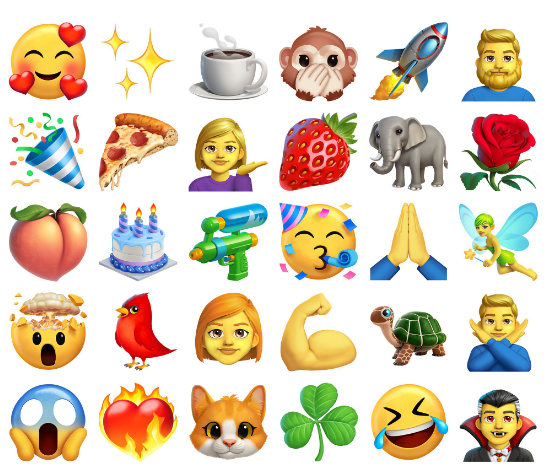
Emoji Writing

Overview
Students will have fun using the Pure Random Emoji Generator created and shared by EduProtocols to practice writing paragraphs based on the Emojis generated. This would be considered a creative writing assignment.
Based on the grade level, students may be asked to create a simple sentence for all of the Emojis or a full paragraph for each Emoji generated. The goal is to tie all of the Emojis together with the Main Idea Emoji.
Learning Objectives
Students will:
Be able to create one simple paragraph that relates the emojis generated to the Main Idea Emoji. (2nd and 3rd grade)
Be able to create a series of paragraphs that incorporate the Emojis generated in the Main Idea Emoji and the Conclusion Emoji (generated in 5). (4th and 5th grade)
Vocabulary
Vocabulary Words:
- Emoji: An emoji is a small digital image or icon used to express an idea, emotion, etc.
- Main Idea: The main idea is the important message in a paragraph.
- Paragraph: A paragraph is a piece of writing that is as long or as short as necessary to develop the main idea.
Pre-planning
To prepare for this lesson:
Make sure students are able to access the Pure Random Emoji Generator.
Create a slide deck or document (or your favorite sharing method) that is editable by the students so they are able to share their writing with others, as a peer review or for the fun of it.
- Here is an example Google Slide Deck of a few pieces of creative writing that were created.
Accommodations
See Accommodations Page and Charts on the 21things4student website in the Teacher Resources.
Steps
Directions for this activity:
Discuss the process of creating a simple paragraph or series of paragraphs with your students depending on the writing development process appropriate for the grade level.
Components that need to be emphasized would be; the main idea paragraph, supporting paragraphs, and the conclusion.
- Display the Pure Random Emoji Generator and provide an example based on Emojis that you have generated (either on the fly or ahead of time).
You may ask them to turn on the animation in the top right hand corner. This will produce gifs that they are able to copy and paste (or download) onto their writing to be shared. If not having them turn on animation, the images can be used on their shared document.
Show the students how to add their writing and their emojis (or animated gif) to the shared resource. You may share the example Google Slide Deck and read the examples.
- If using a peer review process for improvement, decide on partners or groups and discuss the peer review process and then the revision process.
If sharing for fun, discuss this process and the importance of writing appropriately.
Assessment Options
Different options for assessing the students:
- This activity would be used to practice creative writing skills and work towards building up the ability to write full sentences and paragraphs.
- As a formative assessment feedback would be provided on the final writing piece that is shared.
- Observation should be used throughout the activity and verbal feedback provided.
MITECS Competencies & ISTE STANDARDS
MITECS: Michigan adopted the "ISTE Standards for Students" called MITECS (Michigan Integrated Technology Competencies for Students) in 2018.
Knowledge Constructor 3c. Curate information from digital resources using a variety of tools and methods to create collections of artifacts that demonstrate meaningful connections or conclusions.
Creative Communicator 6b. Create original works or responsibly repurpose or remix digital resources into new creations
Creative Communicator 6d. Publish or present content that customizes the message and medium for their intended audiences.
Devices and Resources
Device: PC, Chromebook, Mac, iPad
Browser: Chrome, Safari, Firefox, Edge, ALL
App, Extension, or Add-on:
Websites:
CONTENT AREA RESOURCES
ELA
Writing simple paragraphs at grades 2 and 3 with the focus on a main idea sentence, supporting sentences, and conclusion sentence.
Writing a series of paragraphs with the focus on a main idea paragraph, supporting paragraphs, and a conclusion paragraph.
Integrated Arts
Dependent on emojis that are generated.
Math
Dependent on emojis that are generated.
Science
Dependent on emojis that are generated.
Social Studies
Dependent on emojis that are generated.
CREDITS
This task card was created by Tina Tribu
REMC Association Project Manager


